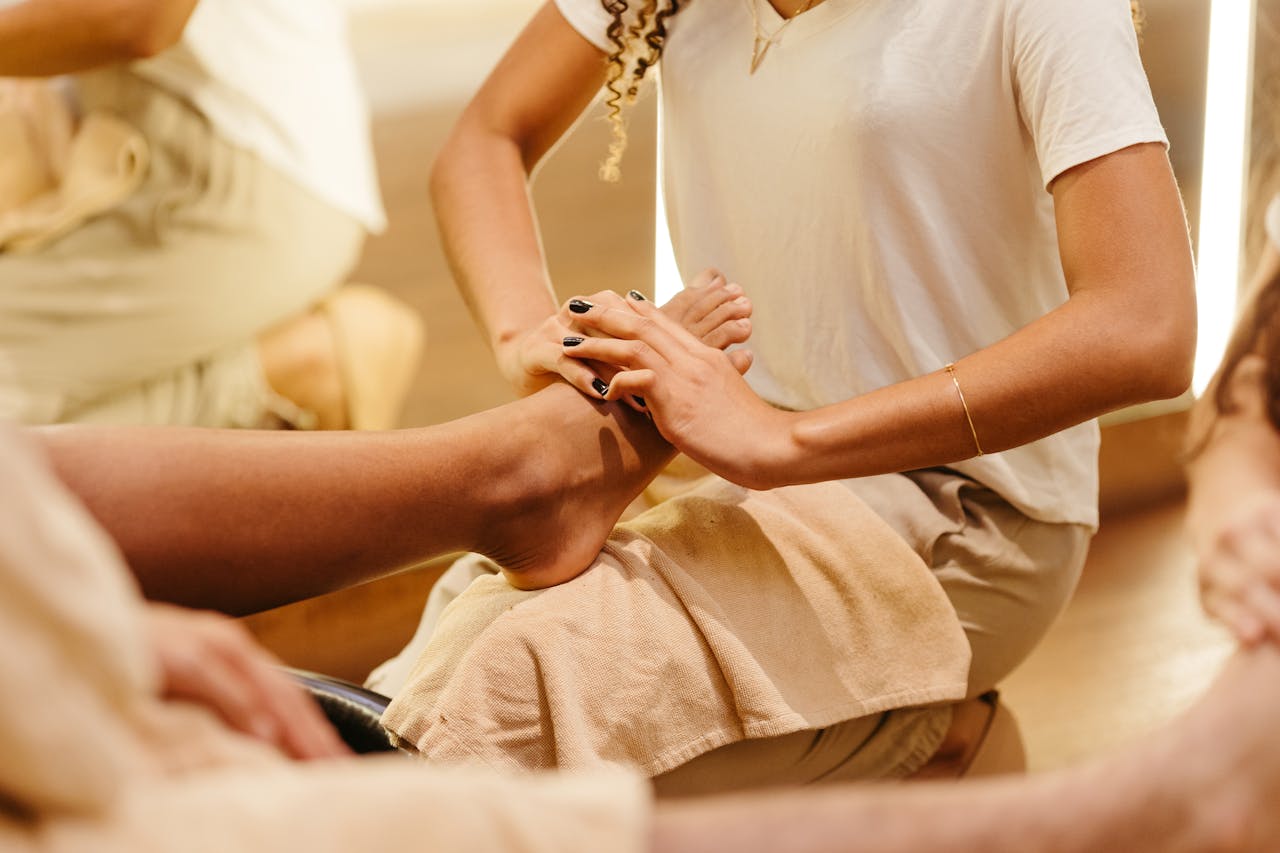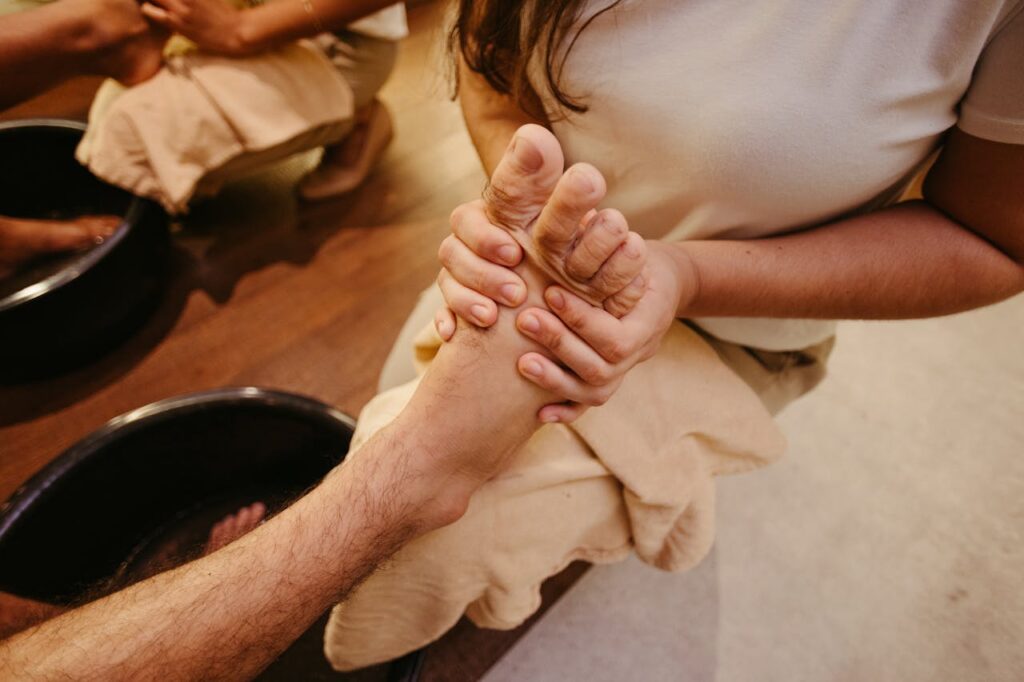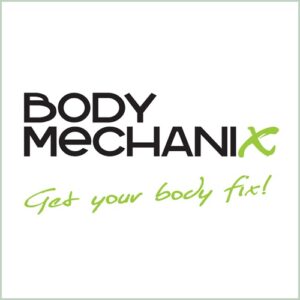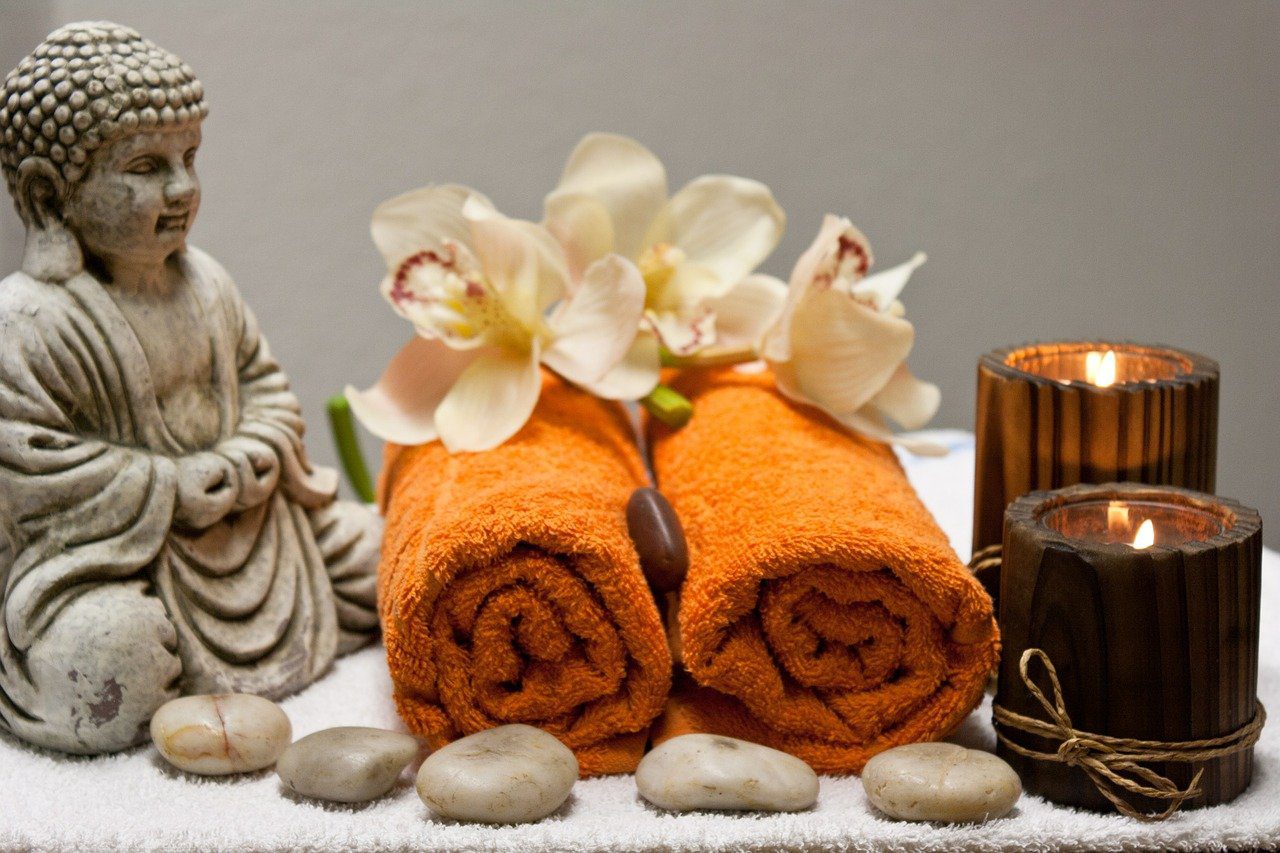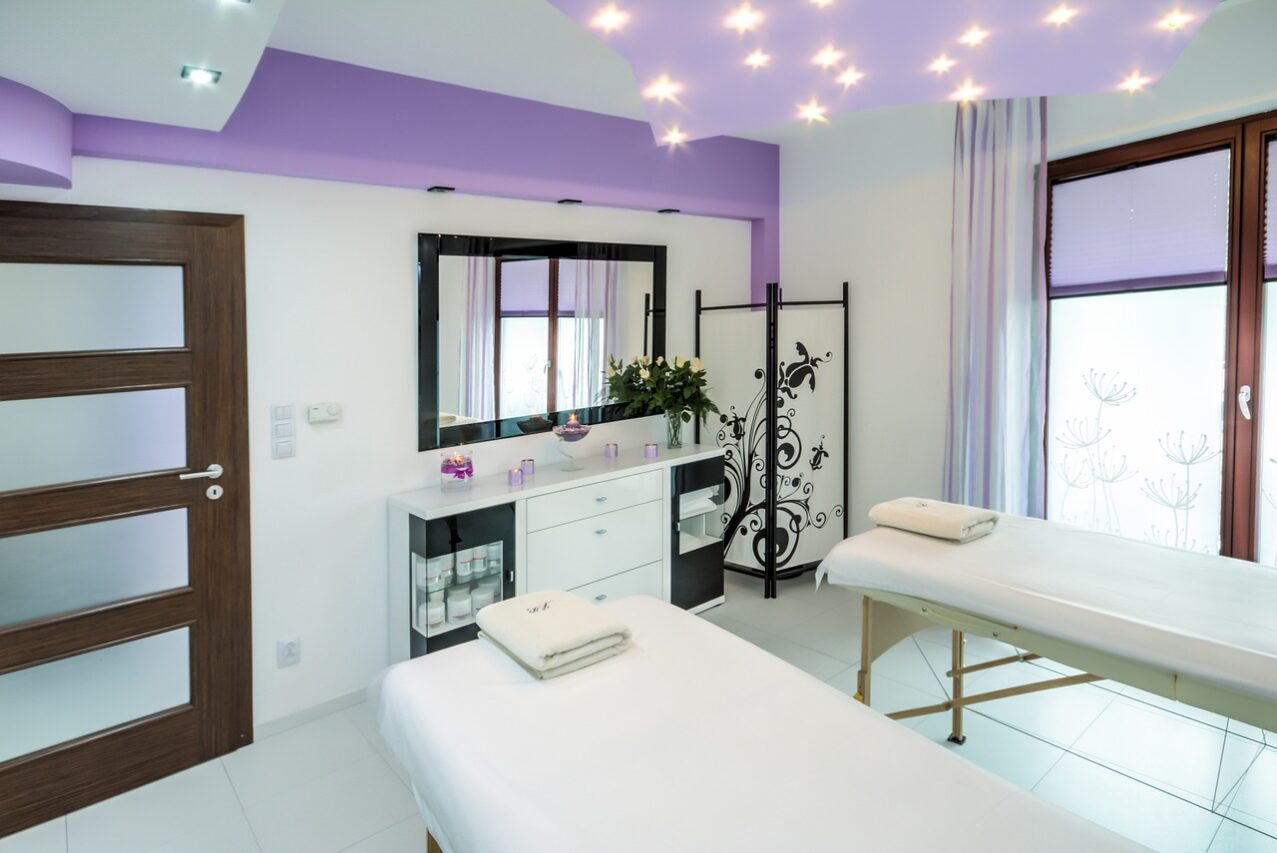Introduction to Massage Therapy and Reflexology
Massage therapy and reflexology have a rich historical background that dates back to ancient civilisations such as Egypt, India, and China, where these practices were revered for their healing properties. The ancient wisdom of these traditions has seamlessly integrated into modern holistic wellness approaches, offering individuals a time-tested method for balancing body and mind. The growing popularity of massage therapy and reflexology in contemporary society reflects a heightened awareness of the importance of self-care and overall well-being.
For example, in ancient Egypt, reflexology was considered a sacred healing art that aimed to restore balance to the body, mind, and spirit. The Egyptians believed that by stimulating specific reflex points on the feet, hands, and ears, they could tap into the body’s natural healing abilities and promote overall health. Similarly, in China, massage therapy was viewed as a way to harmonise the flow of Qi, or life energy, through the body’s meridians. By applying pressure to specific points along these energy pathways, practitioners sought to alleviate pain, reduce stress, and enhance vitality.
As individuals continue to embrace the benefits of massage therapy and reflexology in contemporary times, they are discovering the profound impact these ancient practices can have on their holistic wellness journey. By exploring the synergistic relationship between body and mind through massage and reflexology techniques, individuals can unlock a pathway to enhanced health, vitality, and balance.
The Science Behind Massage Therapy
Different massage techniques, such as Swedish massage and deep tissue massage, offer unique therapeutic benefits that cater to individual needs. Swedish massage, known for its gentle strokes and kneading motions, promotes relaxation and improved circulation, while deep tissue massage targets deeper muscle layers to address chronic pain and tension. Understanding the nuances of these techniques allows practitioners to tailor sessions to meet specific health and wellness goals, offering a personalised approach to healing.
Moreover, scientific research has shed light on the physiological effects of massage therapy on the body. Studies have shown that massage can reduce cortisol levels, the stress hormone, leading to a state of relaxation and calm. This reduction in cortisol not only alleviates stress but also contributes to improved sleep quality and reduced muscle tension, enhancing overall well-being. For instance, a study conducted by German researchers found that just 10 minutes of massage could significantly increase heart rate variability, indicating a decrease in stress levels. These findings highlight the tangible benefits of massage therapy in promoting both physical and mental health.
Additionally, the positive effects of regular massage sessions extend beyond the physical realm to encompass mental and emotional well-being. By fostering a sense of relaxation, reducing anxiety, and improving mood, massage therapy plays a crucial role in supporting holistic wellness and promoting a harmonious balance between body and mind. This holistic approach to healing underscores the transformative power of massage therapy in nurturing overall health and vitality.
Understanding Reflexology Techniques
Reflexology techniques are rooted in the ancient principles of traditional Chinese medicine, where the body is seen as a holistic system interconnected by energy meridians. Practitioners of reflexology focus on stimulating specific reflex points on the feet, hands, and ears to target corresponding organs and systems within the body, promoting balance and well-being. This targeted approach allows reflexologists to address specific health concerns by working with the body’s natural energy flow.
For example, reflexology charts depict the intricate network of reflex zones on the feet, hands, and ears that correspond to different body parts. By targeting these reflex zones, reflexologists can stimulate nerve endings, promote circulation, and support organ function. Each reflex zone represents a microcosm of the entire body, allowing practitioners to address a wide range of physical and emotional issues through targeted pressure and manipulation.
Furthermore, the practice of reflexology aligns with the belief that the body has an innate ability to heal itself when in balance. By fostering a harmonious equilibrium within the body, reflexology sessions aim to support the body’s self-healing mechanisms and promote overall health restoration. This holistic approach to wellness acknowledges the interconnectedness of the body, mind, and spirit, emphasising the importance of creating a state of balance for optimal health. Through the precise application of reflexology techniques, individuals can experience a profound sense of relaxation, rejuvenation, and well-being.
Image Credits
Benefits of Foot Reflexology
Foot reflexology offers a myriad of benefits that contribute to overall relaxation and well-being [4]. By targeting specific reflex points on the feet that correspond to various organs and systems in the body, reflexologists can induce a state of deep relaxation and stress relief. For example, stimulating the reflex point associated with the digestive system can help improve gastrointestinal functions and alleviate digestive issues such as bloating and indigestion. This targeted approach allows individuals to address specific health concerns through the ancient art of reflexology.
Moreover, research has shown that foot reflexology can play a significant role in improving circulation throughout the body. Enhanced blood flow not only nourishes the cells and organs but also supports the body’s natural ability to heal and regenerate. For individuals experiencing pain or discomfort, reflexology can offer relief by stimulating specific reflex points that correspond to the affected areas, aiding in pain management and promoting overall well-being. By harnessing the healing power of reflexology, individuals can tap into the body’s innate wisdom and experience a profound sense of balance and vitality.
Furthermore, the holistic nature of foot reflexology extends beyond physical relaxation to encompass emotional and mental well-being. Reflexologists understand that the mind-body connection plays a vital role in overall health, and by promoting balance through reflexology techniques, individuals can experience enhanced mental clarity, emotional balance, and a sense of rejuvenation. This integrative approach to well-being emphasises the interconnectedness of body and mind, highlighting the transformative effects of foot reflexology on an individual’s holistic wellness journey.
Hand Reflexology for Pain Management
Hand reflexology offers a convenient and effective method for managing pain and promoting overall well-being [5]. By manipulating specific reflex points on the hands that correspond to different areas of the body, individuals can alleviate symptoms of pain and discomfort. For instance, targeting the reflex points associated with the head and neck on the hands can help reduce the intensity and frequency of tension headaches, offering a natural and holistic approach to pain management. This non-invasive technique allows individuals to address pain and discomfort in a gentle yet effective manner.
Additionally, hand reflexology techniques can be easily incorporated into daily self-care routines, providing individuals with the tools to proactively manage their health and well-being. By taking a few moments each day to apply pressure to reflex points on the hands, individuals can promote relaxation, reduce stress, and enhance overall vitality. This proactive approach empowers individuals to take charge of their health journey and cultivate a deeper connection with their body’s innate healing abilities, fostering a sense of balance and harmony.
Moreover, hand reflexology serves as a complementary therapy that can be used in conjunction with traditional medical treatments to enhance pain management and overall well-being. By stimulating specific reflex points on the hands, reflexologists can support the body’s natural healing mechanisms, reduce inflammation, and promote relaxation. This integrative approach to health underscores the importance of addressing pain and discomfort through a holistic lens, acknowledging the interconnectedness of the body, mind, and spirit. Through the gentle yet powerful techniques of hand reflexology, individuals can experience relief, relaxation, and restoration on their path to holistic wellness.
The Holistic Approach of Reflexology
The holistic approach of reflexology encompasses physical, emotional, and mental aspects of well-being, offering a comprehensive method for supporting overall health. Reflexologists understand that the body is a complex system of interconnected parts, and by stimulating specific reflex points on the feet, hands, and ears, they can promote balance and well-being throughout the body. For example, reflexology sessions are tailored to create a harmonious equilibrium within the body, targeting energy pathways and promoting the removal of blockages that may impede optimal health. This integrative approach allows individuals to experience a profound sense of relaxation, rejuvenation, and overall well-being.
Furthermore, reflexology treatments focus on supporting the body’s self-healing mechanisms and promoting health restoration. By working with the body’s innate healing abilities, reflexologists can target specific health concerns, alleviate symptoms, and foster a state of balance within the body. For individuals dealing with chronic conditions such as arthritis or fibromyalgia, reflexology can offer relief from pain and discomfort, enhance immune function, and reduce inflammation. This therapeutic touch creates a deep sense of relaxation, comfort, and healing, allowing individuals to experience the transformative effects of reflexology on their holistic wellness journey.
Moreover, reflexology sessions are designed to address not only physical ailments but also emotional and mental well-being. By promoting relaxation, reducing stress, and enhancing mood, reflexologists can support the mind-body connection and create a state of harmony within the body. This comprehensive approach to wellness acknowledges the interconnectedness of the body, mind, and spirit, emphasising the importance of nurturing all aspects of well-being. Through the ancient art of reflexology, individuals can tap into their body’s innate healing powers, experience a profound sense of restoration, and embark on a journey towards holistic health and vitality.
Mental Clarity and Energy Flow
Reflexology practices are known for their ability to enhance mental clarity, improve focus, and promote cognitive well-being. By reducing cognitive fatigue and stimulating nerve endings, reflexologists can help individuals experience heightened mental acuity and sharpness during and after reflexology sessions. For example, individuals struggling with mental fog or difficulty concentrating may find relief through regular reflexology treatments, allowing them to approach tasks with renewed clarity and focus.
Additionally, the improved energy flow resulting from reflexology techniques can have profound effects on an individual’s overall vitality and sense of rejuvenation. This enhanced energy circulation can lead to increased feelings of liveliness, helping individuals feel more energised and revitalised in their daily lives. For instance, individuals experiencing fatigue or low energy levels may benefit from reflexology’s ability to boost energy flow, providing them with the stamina and vigour needed to navigate daily challenges with enthusiasm. By promoting mental clarity and enhancing energy flow, reflexology offers a holistic approach to well-being that nurtures both the body and the mind.
Therapeutic Touch and Healing Benefits
The therapeutic touch involved in reflexology creates a deep sense of relaxation, comfort, and healing. Individuals undergoing reflexology sessions often report feelings of profound calm and serenity, allowing them to release tension and stress held within the body. For example, individuals with conditions such as arthritis or fibromyalgia may find relief from pain and discomfort through the gentle yet powerful techniques of reflexology, which target specific reflex points on the feet and hands. This therapeutic approach not only addresses physical symptoms but also supports emotional well-being, fostering a sense of balance and harmony within the body.
Furthermore, reflexology serves as a complementary therapy that can enhance traditional medical treatments by reducing inflammation, promoting immune function, and supporting overall health. By stimulating reflex zones associated with different organs and systems, reflexologists can help the body detoxify, restore energy flow, and promote a state of balance and calmness. This integrative approach to health restoration underscores the importance of addressing both physical and emotional aspects of well-being through reflexology. Through consistent reflexology treatments, individuals can experience a reduction in stress levels, an improvement in overall health, and a sense of inner peace and well-being.
Reflex Zones and Health Restoration
Reflexology charts provide a detailed map of specific reflex zones on the feet, hands, and ears that correspond to different body parts, offering a holistic approach to well-being. By targeting these reflex zones, reflexologists can promote detoxification, support organ function, and restore balance within the body. For example, stimulating the reflex zone associated with the liver on the foot can aid in detoxification processes and promote liver health, contributing to overall well-being. This targeted approach allows individuals to address specific health concerns and support the body’s natural healing mechanisms through the ancient art of reflexology.
Moreover, reflexology emphasises the interconnectedness of the body systems and organs, highlighting the importance of maintaining harmony within the body for optimal health. By applying pressure to reflex zones linked to different body parts, reflexologists can promote circulation, reduce tension, and enhance the body’s ability to function optimally. For instance, targeting reflex zones associated with the digestive system can help improve digestion, alleviate symptoms of bloating or indigestion, and support overall gastrointestinal health. Through the focused stimulation of reflex zones, individuals can experience a profound sense of relaxation, rejuvenation, and restoration, promoting holistic well-being and vitality.
In essence, reflex zones serve as gateways to holistic health restoration, enabling individuals to tap into their body’s innate healing potential by harmonising interconnected systems through reflexology techniques. By exploring the transformative effects of reflexology on the mind and body, individuals can experience a profound sense of balance, vitality, and well-being. To embark on a journey towards holistic health and wellness, individuals are encouraged to visit the Body Mechanix website. Discover the healing benefits of reflexology, embrace a state of balance and harmony, and nurture your body and mind through the ancient art of massage therapy and reflexology.

